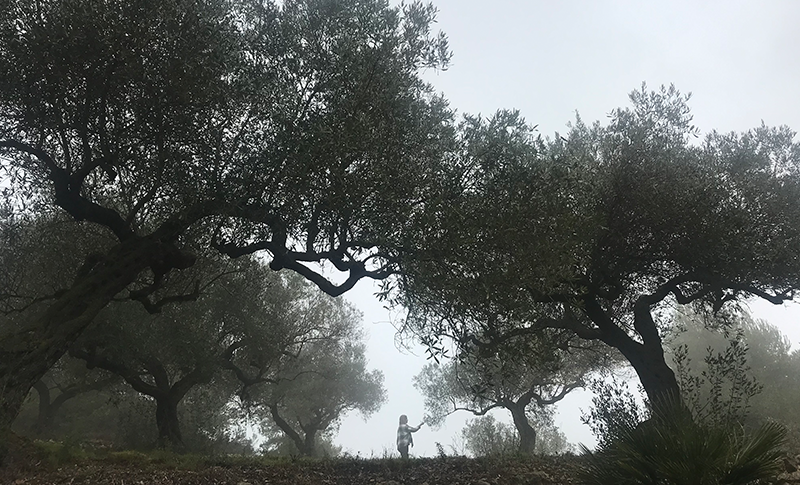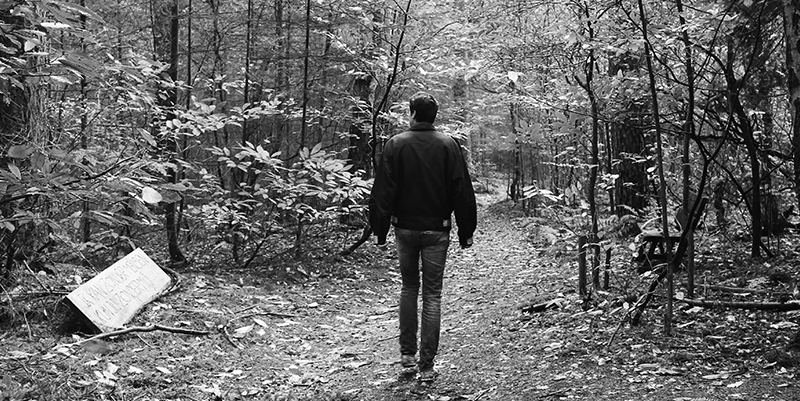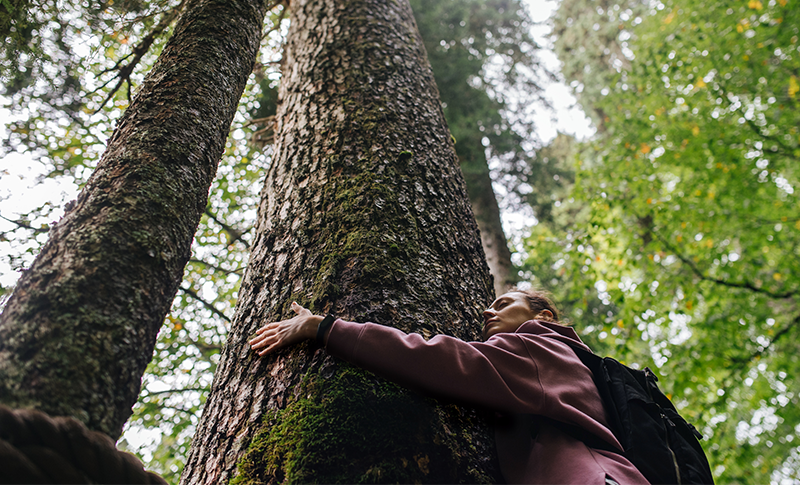Cathrien de Pater obtained her doctorate last month, just before her 71st birthday. The oldest woman PhD graduate yet at WUR, so quite an achievement. At least as remarkable – in Wageningen anyway – is her topic: the spirituality of forests. De Pater studied whether and to what extent forest management takes into account the spiritual value of forests.
Cathrien de Pater obtained her doctorate last month, just before her 71st birthday. The oldest woman PhD graduate yet at WUR, so quite an achievement. At least as remarkable – in Wageningen anyway – is her topic: the spirituality of forests. De Pater studied whether and to what extent forest management takes into account the spiritual value of forests.
De Pater was a late bloomer academically. She graduated in Tropical Forestry from Wageningen in 1979 and pursued a career as a development professional in forestry projects. She started out with the UN’s Food and Agriculture Organization (FAO) and then worked from 1987 as a forestry advisor for the ministries of Development Cooperation and of Agriculture, Nature and Food. Around 2000, aged nearly 50, she went back to university to study Interreligious Spirituality. She followed this, after taking early retirement 10 years ago, with a PhD with the Forest and Nature Policy group at Wageningen.
Where does your interest in spirituality come from?
‘For a long time, I implemented forestry projects for the FAO and the Dutch government. I lived in various tropical countries with different religions. Particularly in Pakistan, a Muslim country, I saw how important religion is in daily life, and how religion determines behaviour. I got hold of books on the cultural value of forests and what people do with them. I wanted to know more about that.
Spirituality could do with coming out of the shadows
In 2000, when I was working for the ministry of Agriculture, I went part-time and started a degree in Religious Studies, taught through evening classes at Nijmegen. My focus was on the relationship between religion and nature. For my thesis, I interviewed Dutch foresters about their deeper motivations.’
In your thesis, you define spirituality as an inexplicable phenomenon that can only be grasped through experience. Is that a definition?
‘You can’t define spirituality. That definition indicates roughly what I’m talking about. For me, spirituality is that which moves you deeply, inspires you and guides your actions. It is the spark that prompts you to start something and to carry it through.’
Seen that way, is everyone spiritual?
‘Yes, if people recognize that in themselves. But it’s okay to say you’re not spiritual. It’s a question of wording. Actually it’s a terrible word because there’s something vague and woolly about it. Whereas it can be really down-to-earth. You can look for the essence, the ultimate, far away, in God, heaven or the universe. Or you can look for it nearby, in the earth, rocks, all living beings and nature. For me, spirituality is more of a direction, a learning pathway. You can deepen spirituality through practice.’ De Pater thinks that more and more people are looking to nature to find that learning pathway.
Forest-bathing is on the rise at the moment
‘Judging by the experiences and ad hoc observations of forest managers, at least. There is no rock-solid evidence for that increase. People place stone circles or ritual objects at places where they think they will have a powerful effect. Meditation groups often go into the woods. Nature coaching and healing takes place there. So-called forest-bathing is on the rise at the moment. It involves groups of people going on very slow guided walks in the woods, in silence and rather meditatively, with a view to slowing down and relieving stress.’
The range of spiritually oriented activities is extensive. And theoretically, every forest is a suitable venue. There is no prototype of the spiritual forest, according to De Pater. ‘It varies a lot from person to person. For some, the forest must be biodiverse, with lots of indigenous species and a rich structure. For others, a forest with nothing but (non-indigenous) Douglas firs can be meaningful too. The point is to have an atmosphere in the forest that evokes spirituality. Peacefulness is a very important factor. That is the key word that comes up the most in the interviews with forest managers. Peace is crucial for all types of activity.’
Isn’t peace precisely what is getting scarcer in Dutch forests?
‘That’s right. Spirituality can clash with other kinds of forest use. Forest managers are encountering this more and more often. They also increasingly often come across waste from spiritual forest use: flowers, for instance – often grown with toxic substances – that do not belong there, and the remnants of fires and candles. You have water diviners who walk right through a quiet zone to follow ley lines. Of course it’s nothing like the nuisance caused by things like drug waste, but managers are having to deal with it with increasing frequency.’
De Pater researched spirituality in forest management plans by applying methods from religious studies. She formulated 10 dimensions (aspects) of spirituality and looked at how they featured in the plans. And managers of land including natural burial grounds, and owners of private estates were asked about day-to-day practice. ‘The main emphasis in the plans was on the aesthetic experience and tourism,’ concludes De Pater.
Should spirituality play more of a part in forest management?
‘That would be good. Spirituality could do with coming out of the shadows. But I’m not going to tell managers what to do. They are the ones who know a tract of forest best. But I do think more room and more silence for spirituality can help people. And it would be good for managers to know more about spirituality and explore that aspect of forests. That could also be helpful in dealing with conflicts over forest management.’



